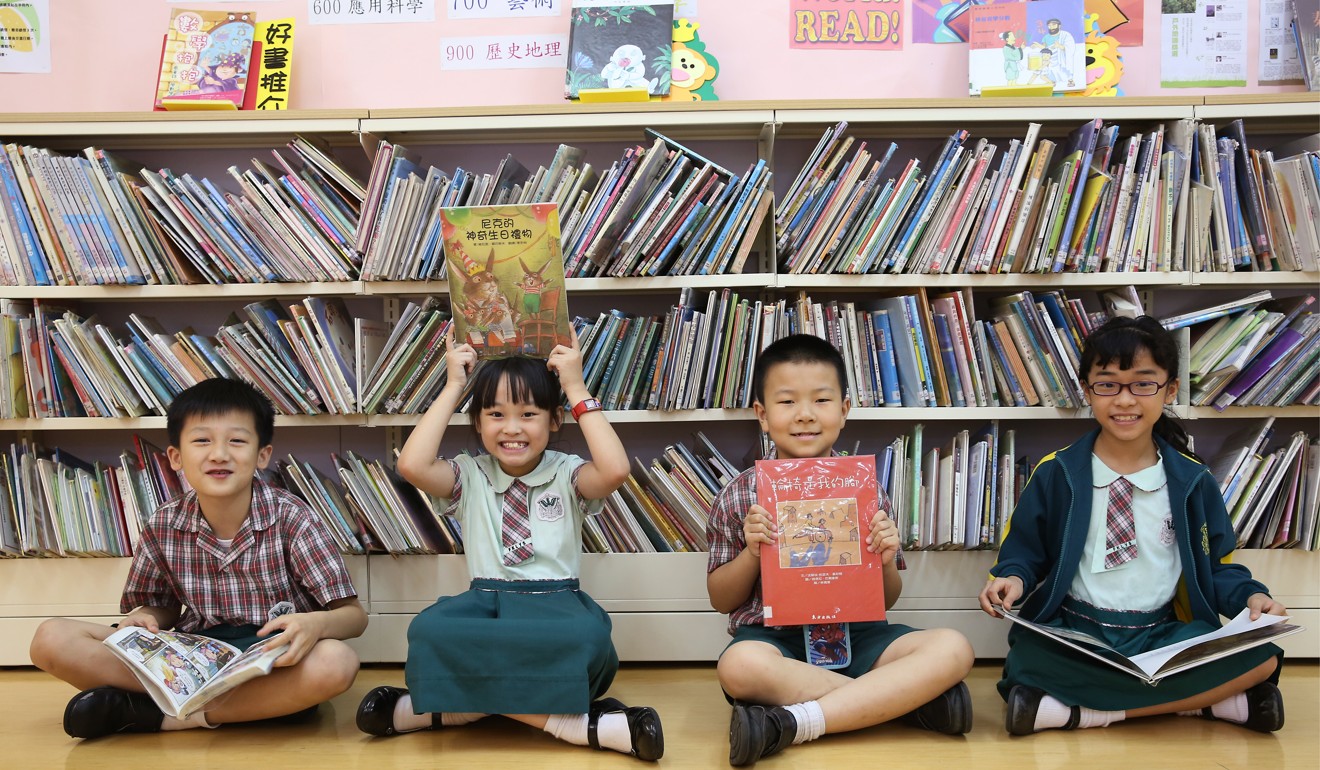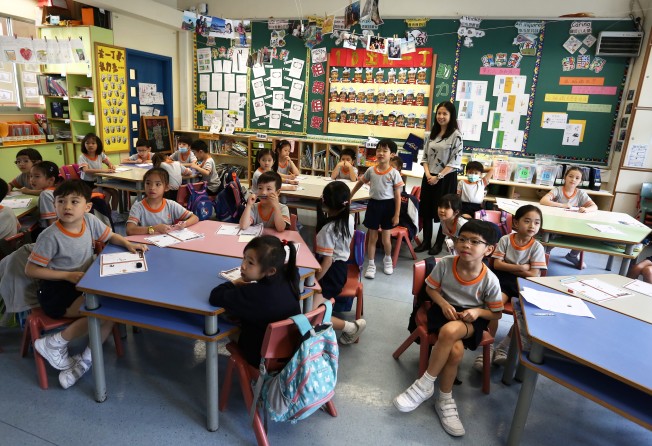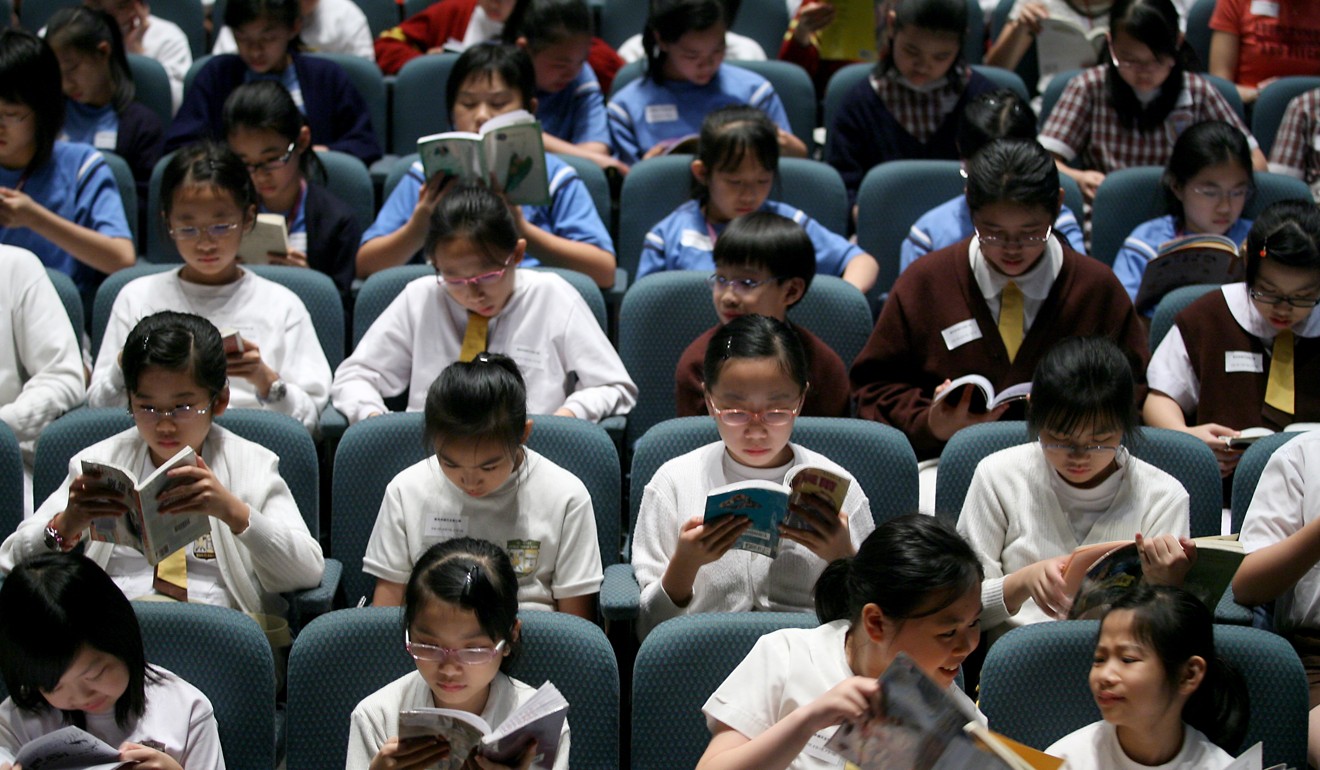
Hong Kong slips to third place in reading literacy ranking, behind Russia and Singapore
HKU professor says Hong Kong not improving in terms of parents’ reading interests and home education resources

Hong Kong has slipped to third place in an international reading literacy ranking, after being overtaken by Russia and Singapore.
In the Progress in International Reading Literacy Study (PIRLS) 2016, released this week, the city was ranked third, with an average score of 569, behind Russia with 581 and Singapore with 576.
The city’s average score for the latest ranking is two points lower than for the previous edition in 2011, in which Hong Kong was placed first.
The survey, which assesses the reading comprehension level of Primary Four pupils worldwide, looked at 50 countries and regions. In Hong Kong, a total of 139 primary schools were selected to participate in the study, with at least one Primary Four class in each selected at random. A total of 3,533 pupils took part.
Two comprehension passages in Chinese – one informative and one literary – were used as test materials.
The pupils, and 3,499 parents, 159 Chinese language teachers and 138 principals from the participating schools, also answered questionnaires about students’ attitudes towards reading, home and school environments, curriculum and pedagogy.
While the slight dip in the average score for Hong Kong was statistically insignificant, Professor Tse Shek-kam from the University of Hong Kong’s faculty of education and who led the investigation in the city, warned of stagnation.
“We dipped slightly because of [Russia and Singapore] improving ... we cannot stop,” he said.
Tse said it was due to Hong Kong not improving in terms of parents’ reading interests and home education resources.

A total of 21 per cent of pupils in the city had many home education resources, such as a table to read at, books and internet access – only slightly higher than the international average of 20 per cent.
“This could be due to the small living spaces in Hong Kong,” Tse said. “Many pupils do not have their own table at home for reading, which is important for them to focus.”
While parents who really like reading have children with a higher attainment, only 17 per cent of parents are in this category, lower than the international average of 32 per cent.
Tse added Singapore’s good performance could be attributed to its efforts to promote reading, such as having a reading expert in each school.
Another researcher in the team, Dr Joseph Lam Wai-ip, an associate professor from the same faculty, noted an overreliance on textbooks for schools, with 95 per cent using them almost every school day.
While the researchers said that Hong Kong had fared well with third place, only 36 per cent of the pupils said they liked reading very much, placing the city 33rd in that category.
Similarly, they were not confident or engaged in reading lessons. Only 36 per cent said that they were very confident in reading and 34 per cent very engaged in reading lessons, placing Hong Kong 41st and last respectively.

The academics urged schools to diversify teaching materials and not just focus on textbooks while calling on parents to read more and engage in parent-child reading.
An Education Bureau spokesman noted Hong Kong’s score was statistically not significantly different from Singapore, which was placed second.
“The continuously remarkable performance of Hong Kong students proves that [our] education is heading in the right direction, and bears recognition to the concerted efforts of the schools, teachers and other stakeholders in providing quality education for our students,” he said.